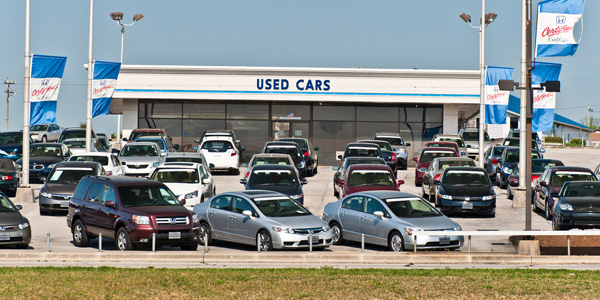
Shoppers seeking bargains on used vehicles might find them harder to come by when they head to the dealership this summer, according to the latest “Used Car Report” from Edmunds.
In the first quarter of 2018, the average transaction price for a used vehicle was $19,657. This reflects a 2.2 percent increase in sales price from the first quarter of 2017, and a 17.6 percent increase from the first quarter of 2013, according to Edmunds.
Edmunds experts attribute the increase to the ever-growing supply of near-new vehicles coming off-lease, and a greater demand for vehicles of all sizes and ages, thanks to shifting market factors.
“Used-car shoppers are typically more price-sensitive to changes in the market, but this is the first time in years that we’re seeing renewed demand for smaller vehicles,” said Ivan Drury, senior manager of industry analysis at Edmunds. “With rising fuel costs breathing fresh air into this segment, subcompact and compact cars are finally retaining value again.”
Edmunds analysts report that fuel costs hit a four-year high in the first quarter of 2018, which has prompted some price-sensitive consumers to reconsider making the switch from a car to an SUV or truck. As a result, smaller cars are moving quicker off dealer lots.
The average price for a three-year-old compact car has increased by 3.9 percent, and days to turn (DTT) has decreased by 7 percent in the first quarter of 2018 compared to the first quarter of 2017. The average price for a three-year-old subcompact car has increased by 3 percent, and DTT has decreased by 8.5 percent in the first quarter of 2018 compared to the first quarter of 2017.
Rising Gas Prices Aren’t Hurting SUV Sales
On the other end of the spectrum, rising fuel costs have yet to translate into a drop in residual values for SUV and trucks.
Edmunds experts note that there continues to be an abundance of shoppers who still place enough value on increased cargo capacity, ride height and other SUV and truck features to bear the costs of lower fuel economy and higher price tags. However, Edmunds analysts caution that this could change if gas prices continue on an upward trajectory.
“Newer SUVs and trucks are nothing like their counterparts from 10 years ago during the gas crisis of 2008. However, they still lag behind their car segment counterparts in fuel economy,” Drury said. “For now, SUV and truck segments are insulated from rising fuel costs, but a large spike or steady creep past the $4-a-gallon threshold could spell disaster for resale values.”
Edmunds analysts note that the risk posed to used SUV and truck residual values is further compounded by the shift in lease type in recent years, reflecting consumer preferences for larger vehicles.
“For the last few years, car-based products reigned as the dominant vehicle type in the off-lease market, which was unfortunate timing for those lease returns given that low fuel costs shifted consumer preference from cars to SUVs and trucks,” said Drury. “As we enter the timeframe for SUVs and trucks to take over a larger share of lease returns, fuel costs are showing signs of rising and disrupting a market that has been stable for years.”
Despite the uncertainties of rising fuel costs, Edmunds experts note that consumers who own large trucks or SUVs should avoid the knee-jerk reaction of trading in their vehicle right away.
“Gas prices are cyclical, and individuals who react too soon could find themselves deeper in the red, especially considering all of the other costs associated with trading in a vehicle,” Drury said. “The best rule of thumb is to wait this out.”
To read the full report, visit the Edmunds Industry Center.







